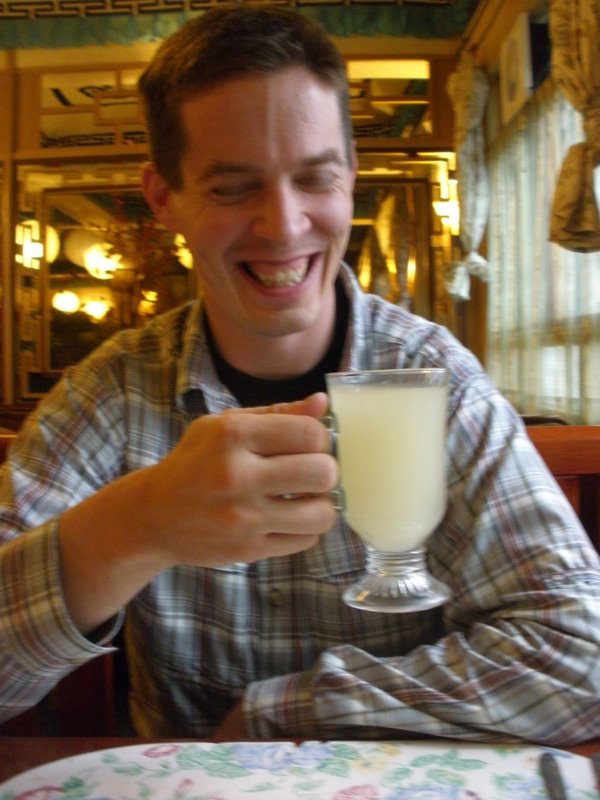Chaang
The trip is going really well so far, and there are too many incredible experiences going on to try to squeeze them into blog posts through this soda straw of an internet connection. I do wish to report, however, on the local hooch: “Chaang.” This is a barley beer made locally, and it’s mentioned in most of the travel guides next to yak butter tea as man, you gotta try this, if only for the experience.

Last night I was finally feeling up to an alcoholic drink (altitude change is no joke!), so I ordered a mug of chaang. When it arrived, I recognized it immediately. This is primary fermentation beer. This is what I’ve produced dozens of times in my kitchen. If you just skipped that whole process of settling, clarification, secondary fermentation, racking, bottling, and aging – you would have chaang. If you’ve been to my house with a batch in process, this is the bubbly, foamy, opaque, yeasty smelling proto-beer.
Put another way: It’s alive.
I’ve sampled live beer, before the yeast settles. I knew what I was getting into. Still, I was somewhat stunned by the speed and power with which the yeast went to work in my belly. Without too much unnecessary detail, I’ll just say that it was tasty, but I won’t be doing that again. Woo-hoo. Buy the ticket, take the ride.
In other news, the altitude sickness has almost entirely let up – we’re down to a vague idea of a headache and “taking it easy” on the walking pace and stairs. The sites and tours are absolutely incredible. We’ve got time to take time and really get into monasteries and temples and talk to people and try to understand. The fact that we’re out here for three weeks means that I’m actually able to relax a bit.
